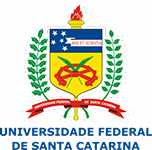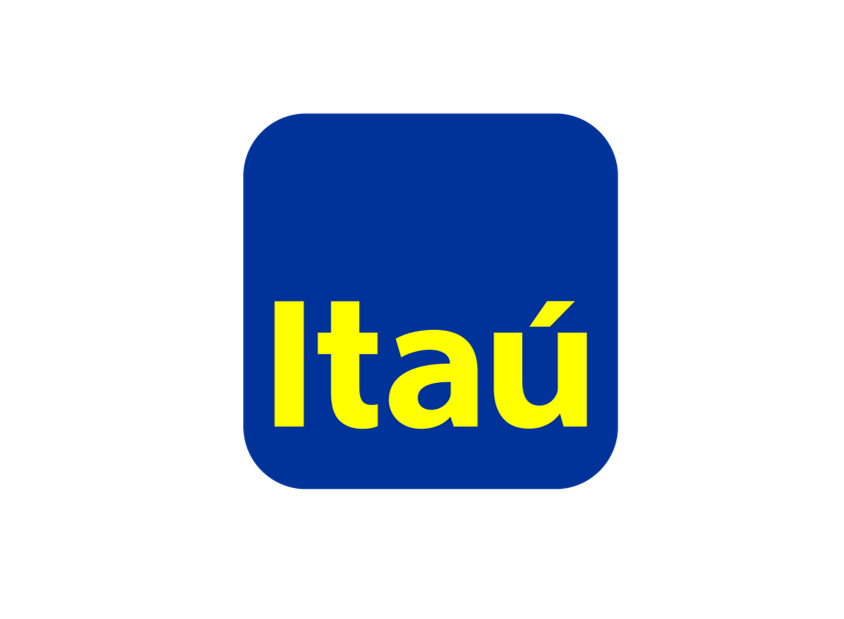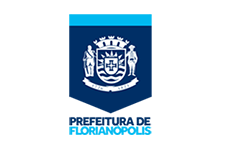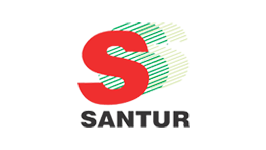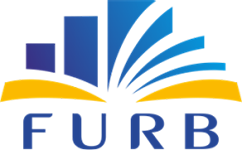BraSNAM
X Brazilian Workshop on Social Network Analysis and Mining
The X Brazilian Workshop on Social Network Analysis and Mining (BraSNAM 2021) will be held in conjunction with CSBC (Congress of the Brazilian Computer Society), which provides a valuable opportunity for multidisciplinary groups to meet and engage in rich discussions about topics related to social network analysis. In 2021, CSBC is under the organization of UFSC and UNIVALI, in Florianópolis, Brazil.
Program
22
July
09:00
22
July
09:05
22
July
09:10
-
BraSNAM em perspectiva: uma análise da sua trajetória até os 10 anos de existência
Fábio Lobato – UFOPA
22
Julho
09:25
-
Aplicação de conceitos de Redes Complexas para descoberta de formação grupos em Mapas Auto-Organizáveis
Thiago Rolemberg, Leandro A. Silva. Universidade Presbiteriana Mackenzie
-
Artigos retratados sobre COVID-19: Uma análise sobre sua rede de citações
Hugo Duca, Ingrid Pacheco, Giseli Rabello Lopes, Maria Luiza M. Campos, Jonice Oliveira. UFRJ
-
Caracterização da relação entre redes sociais e mobilidade de indivíduos em contextos urbanos
José Mauro Ribeiro, Ricardo Alencar, Gustavo Martins, Carolina Xavier, Alexandre Evsukoff, ViníciusVieira. UFSJ, UFRJ
-
Exploring Brazilian Cultural Identity Through Reading Preferences
Mariana O. Silva, Clarisse Scofield, Gabriel P. Oliveira, Danilo B. Seufitelli, Mirella Moro. UFMG
22
Julho
10:30
-
Desenvolvimento de um conjunto de dados com comentários extraídos da plataforma Twitch sobre o jogo League of Legends
Lucas D. F. Rodrigues, Luiz C. C. Lima Junior, Antonio F. L. Jacob Junior, Fábio M. F. Lobato. UFOPA, UEMA
-
Não se perca no debate! Mineração de Argumentação em Redes Sociais
João Pedro da Silva Sousa, Rodrigo Costa Uchoa do Nascimento, Renata Mendes de Araujo, Orlando Bisacchi Coelho. Universidade Presbiteriana Mackenzie
-
Avaliando contribuições na substituição de termos informais em classificação de texto de redes sociais com NetSpeak-BR
Rodolpho da Silva Nascimento, Gabriel dos Santos, Flávio Carvalho, Gustavo Guedes. CEFET/RJ
-
Análise de Sentimentos: Avaliando o Desempenho de Pré-Processamento e de Algoritmos de Aprendizagem de Máquina sobre o Dataset TweetSentBR
Laerte dos Santos Cardozo, Larissa Astrogildo de Freitas. UFPel
22
Julho
11:20
-
O Uso de Redes Sociais como Mecanismos para Promoção de Transparência e Participação dos stakeholders no contexto dos Projetos
Ivaldir Farias Jr, Jeferson Vieira, Hermano de Moura – UFPE
-
Prioritization and transparency in software development: An action research in public administration
Álvaro Pinheiro, Nilo Martins, Melina Soares, Geraldo Neto, Wylliams Santos
22
Julho
16:30
22
Julho
17:25
-
Um método linguístico que combina polaridade, emoção e aspectos gramaticais para detecção de Fake News em Inglês
Gustavo A. Testoni, Marcelo P. Souza, Paulo Márcio S. Freire, Ronaldo R. Goldschimidt. Instituto Militar de Engenharia
-
Caracterização da Propagação de Rumores no Twitter utilizando Redes Textuais Temporais
Fabíola S. F. Pereira. Universidade Federal de Uberlândia
-
Detection of pedophilia content online: a case study using twitter
Raphael Reis Coelho, Jonice Oliveira. UFRJ
-
Quão efetivas são Redes Neurais baseadas em Grafos na Detecção de Fraude para Dados em Rede?
Ronald D. R. Pereira, Fabrício Murai. UFMG
22
Julho
18:15
-
A Nudez como Estereótipo de Beleza através das Lentes do Instagram
Breno Matos, Fabrício Benevenuto, Ana Paula da Silva. UFMG
-
Viés de Gênero em Biografias da Wikipédia em Português
Isadora A. Salles, Gisele L. Pappa. UFMG
-
Das milícias digitais ao comportamento coordenado: métodos interdisciplinares de análise e identificação de bots nas eleições brasileiras
João Guilherme dos Santos, Arthur Ituassu, Sérgio Lifschitz, Thayane Guimarães, Diego Cerqueira, Debora Albu, Redson Fernando, Julia Ferreira, Maria Luiza Mondelli. PUC Rio, ITS Rio
22
Julho
18:45
-
DLPS baseado em Deep Learning: Nova Abordagem para Detecção de Exfiltração em HDFS
James de Martins, Li Weigang, Luis Garcia, Gabriel A. Castro – UNB
23
Julho
09:00
23
Julho
09:05
-
Social network analysis and mining: challenges and applications
Bruna Fonseca, Priscila Albuquerque, Fabio Zicker, Carlos Morel – FIOCRUZ
23
Julho
09:20
-
Caracterização do debate no Twitter sobre a vacinação contra a COVID-19 no Brasil
Larissa Malagoli, Júlia Stancioli, Carlos H.G. Ferreira, Marisa Vasconcelos, Ana Paula da Silva. UFMG
-
Covid-19 e Tweets no Brasil: coleta, tratamento e análise de textos com evidências de estados afetivos alterados em momentos impactantes
Mario Maia, Erneson Oliveira, Luciano Gallegos. UNIFOR
-
Estudo de critérios de distribuição de vacinas com doses limitadas – uma abordagem baseada em redes complexas
Ronaldo A. M. Júnior, Vinícius F. Vieira, Carolina Xavier. UFSJ
-
Análise Exploratória das Dúvidas sobre a COVID-19 Publicadas no Twitter
Tiago de Melo. Universidade do Estado do Amazonas
23
Julho
10:20
23
Julho
14:00
-
Integração de Dados Factuais e Subjetivos: Um Estudo de Caso em Comércio Eletrônico
Altigran S. Silva – UFAM
23
Julho
14:15
-
Caracterização de caminhos mais prováveis em uma rede complexa para um processo jurídico
J. L. de Araújo, João Monteiro Neto, F. de Siqueira, C.H. Santos, R. de Vasconcelos, Erneson Oliveira, Carlos Caminha, Vasco Furtado. Universidade de Fortaleza
-
Classificação de personalidade no Twitter: Uma análise sobre a viabilidade de transferência multicultural de aprendizagem
Arthur Pereira de Oliveira, Marcos César da Rocha Seruffo. UFPA
-
Measuring the Degree of Divergence when Labeling Tweets in the Electoral Scenario
Jéssica S. Santos, Flávia Bernardini, Aline Paes. UFF
-
Propaganda eleitoral antecipada: uma análise de postagens em mídias sociais
Márcio Silva, Samuel Guimarães, Josemar Caetano, Marcelo Araújo, Jonatas Santos, Júlio Reis, Ana Silva, Fabrício Benevenuto, Jussara Almeida. UFMG, UFV
23
Julho
15:15
-
Sistemas Gerenciadores de Legado Digital : implicações tecnológicas e legais em redes sociais
Cristiano Maciel – UFMT
23
Julho
15:30
23
Julho
16:00
23
Julho
16:30
Call for Papers
The study of social networks originated in social, educational and business communities, with better theoretical support from the 1940’s on. Today, the increasing use of Web and social media fosters interaction among people, data dissemination and information sharing. With such a growing data availability (provided by people and their interaction, logs and web servers), there are opportunities of evaluating and developing techniques for improving social networks and information over many contexts. Hence, social network analyses and techniques have defined fruitful research fields in academia, politics, security, business, marketing, sciences and many others.
BraSNAM 2021 provides an interdisciplinary venue to bring together practitioners and researchers from social networks and its related fields, to promote collaboration and exchange of ideas and practices.
Topics of Interest
BraSNAM topics of interest include, but are not limited to:
- Social Data and Information Lifecycle: extraction, cleaning, modeling, querying, indexing, embedding, features and metrics, transformation, compression and summarization, integration, management, storage, characterization, analysis, mining, learning, sampling, monitoring, privacy preserving, navigation and visualization, and evolution.
- Social and Information Networks Human Aspects: crowdsourcing and crowdfunding, ethical issues, fairness and bias, spam, misinformation, malicious activities, communities, influence detection and propagation, epidemiology, social capital, user behavior modeling, organizational and group behavior, cognitive computing, reputation, trust and expertise identification, and team formation.
- Social and Information Networks in Context: medicine, sciences, education, culture, research and academia, government and politics, economics, health and well-being, marketing, business, management, digital humanities, and software ecosystems.
- Social and Information Networks Techniques: big data, flow and diffusion, interface, link prediction, simulation and evolution, engagement and gamification, sentiment and opinion analysis, ranking, recommendation, retrieval, trend identification, tracking and forecasting.
- Specialized Social and Information Networks: covert networks and dark web, location-aware social networks and mobility, professional networks, mobile and smart multimedia sensors, and novel applications.
Important Dates
March 12April 16: Paper registration (HARD)March 26April 16: Submission deadline (HARD)- May 21: Notification
- June 04: Camera ready
Submission Instructions
The workshop accepts submissions of full and short papers, written in Portuguese or English, not exceeding 12 or 6 pages. Research papers, tools/applications (demo tools) or datasets description can be submitted as full or short papers. Position papers and work in progress should be submitted as short papers.
The submissions must follow the Code of Conduct for publications of Brazilian Computing Society (SBC). Submissions should follow the template of the Brazilian Computing Society (SBC), which are available in http://tinyurl.com/sbc-template-artigos
All (full and position) papers will be peer-reviewed according to the following criteria: adequacy to workshop scope, relevance, technical quality, clarity, originality, and evaluation of results. The evaluation of results is desired, but is not a precondition for submission. All technical papers will be presented during the workshop.
In case of dataset papers, the authors must follow the “Dataset Paper Format” that includes: a dataset or a group of datasets, metadata describing the content, quality and structure, potential applications, and methods employed for data collection. Descriptive statistics may be included in the metadata (more sophisticated analyses should be part of technical paper submission). Authors are encouraged to include a description of how they intend to make their datasets FAIR. Datasets and metadata must be published using a dataset sharing service (e.g. Zenodo, figshare, datorium, dataverse, or any other dataset sharing services that indexes your dataset and metadata and increases the re-findability of the data) that provides a DOI for the dataset, which should be included in the dataset paper submission. ONLY Dataset paper review will be single-blind, and all datasets have to be identified and uploaded at the time of submission. Please, be careful with private or confidential information/data. The authors will be responsible for any sensitive information in the datasets. Please read the instructions carefully in BraSNAM 2021 Dataset Submission Guidelines.
***Submissions will go through a double-blind review process with at least three reviewers. Therefore, author names and contact information must be omitted from the whole submission. ONLY Dataset submissions will go through single-blind review, and all datasets have to be identified and uploaded at the time of submission. For more information on how to produce an anonymous submission, check http://bit.ly/submissao-anonima (in Portuguese only). ***
Authors must identify the topic(s) being addressed in the paper to assist the program committee in the review process. Selected papers will be published in special issues /of a journal (to be announced soon). Each manuscript must be submitted electronically, as a PDF file, via the JEMS submission site (https://jems.sbc.org.br/home.cgi?c=3782).
Best Paper Awards
BraSNAM 2021 will have the following awards, which will be announced during the event: Full Paper, Short Paper, and Dataset Paper.
We will select the distinguished papers in each category. The awards will be conferred to the author(s) of a paper presented at the conference. The decision criterion will consider both the paper quality and oral presentation quality.
The distinguished full, short, and dataset papers submitted to BraSNAM will be invited to submit an extended and revised version to the iSys – Brazilian Journal of Information Systems (full and short papers) and JIDM – Journal of Information and Data Management (dataset papers).
Paper Registration and Presentation Instructions
At least one author registration is mandatory for including the paper in the proceedings. Authors with more than one approved paper at any CSBC workshop/event may pay a single registration, plus an “extra publication fee” per additional article. The value of this “extra publication fee” will be informed at the CSBC registration webpage.
Full papers will be presented in the technical sessions of BraSNAM 2021. Accepted short papers, tools/applications, and dataset will also be published in the workshop’s proceedings and will be presented as posters. There will be a session for tool demonstration.
BraSNAM reserves the right to not include in the proceedings those papers that, during the workshop, are not presented by one of its authors or by a designated presenter.
Accepted papers will be published in the BraSNAM proceedings at SBC Open Lib, SBC’s content portal, in the Brazilian Workshop on Social Network Analysis and Mining (BraSNAM) series, ISSN 2595-6094. All papers will be indexed with DOI.
Organization
Program Committee Chairs
- Jonice Oliveira (UFRJ)
- Mirella M. Moro (UFMG)
Local Chair
- Ronaldo S. Mello (UFSC)






